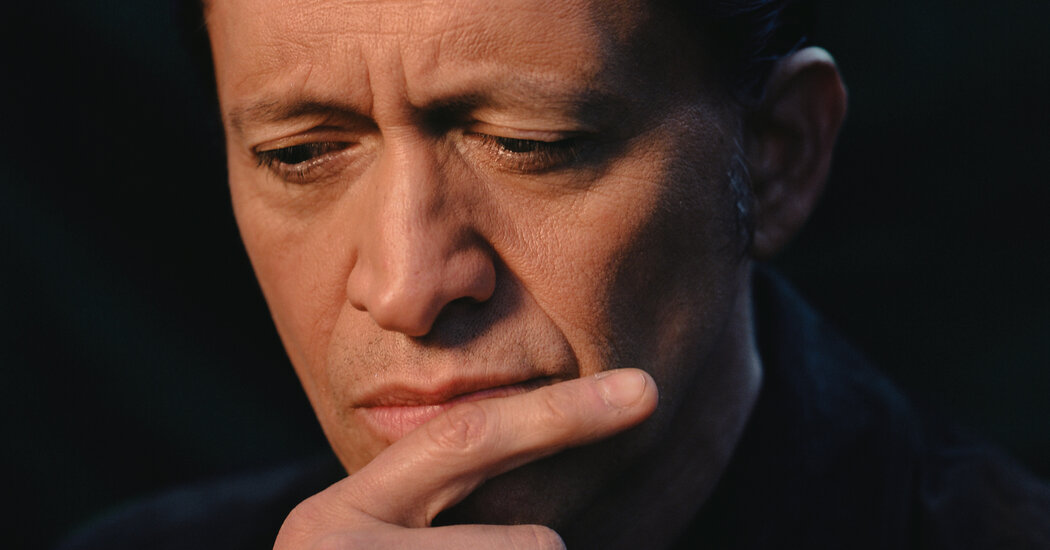
One evening while shooting “Nightmare Alley” in Toronto, del Toro encouraged Collins to write a screenplay about Gonzalez-Gonzalez. Collins began writing that very night.
Gonzalez-Gonzalez himself received a star on the Hollywood Walk of Fame in 2011, five years after his death and decades after he first sought it. Instinctively switching to Spanish whenever quoting his grandfather, Collins recalled: “When he got cancer, the second he told me, ‘Mijo, I’ve had a life bigger that I could ever dreamt of, the only thing I never got was that pinche star,’ and I said, ‘Grandpa, I promise you I’m going to get you that star.’”
The promise was kept thanks in part to the advocacy of Samuel L. Jackson, whom Collins considers a father figure. The two starred together in the 1997 crime drama “One Eight Seven,” in which Collins played a young gangbanger opposite Jackson’s high school teacher, and have remained close friends ever since.
Collins embodies the “there are no small parts, only small actors” truism, Jackson said, citing “the preparation, the attention to detail, the love of the craft.” Collins is “the kind of actor that demands your best and gives you his.”
Onscreen, Collins has walked on both sides of the law, as a border agent on several occasions, and many others as men behind bars, like Cesar in “One Eight Seven.” But there’s a double standard for Latinos, he said, when it comes to roles that, while psychologically three-dimensional and rich, are not positive portrayals or seem to perpetuate stereotypes. With “One Eight Seven,” mainstream critics discredited him, the actor said, by suggesting the production had simply found a real criminal for the part, as if he couldn’t have been an actor who worked on the role. Meanwhile, he said, the ALMA Awards, which honor American Latinos in entertainment, wouldn’t consider his performance because they only highlight what they consider to be edifying representation.
“How come Robert De Niro and Al Pacino can get awards for playing gangsters of their communities? But when we play gangsters of our communities, they say, ‘Don’t do that. We got to be the good immigrants.’”







